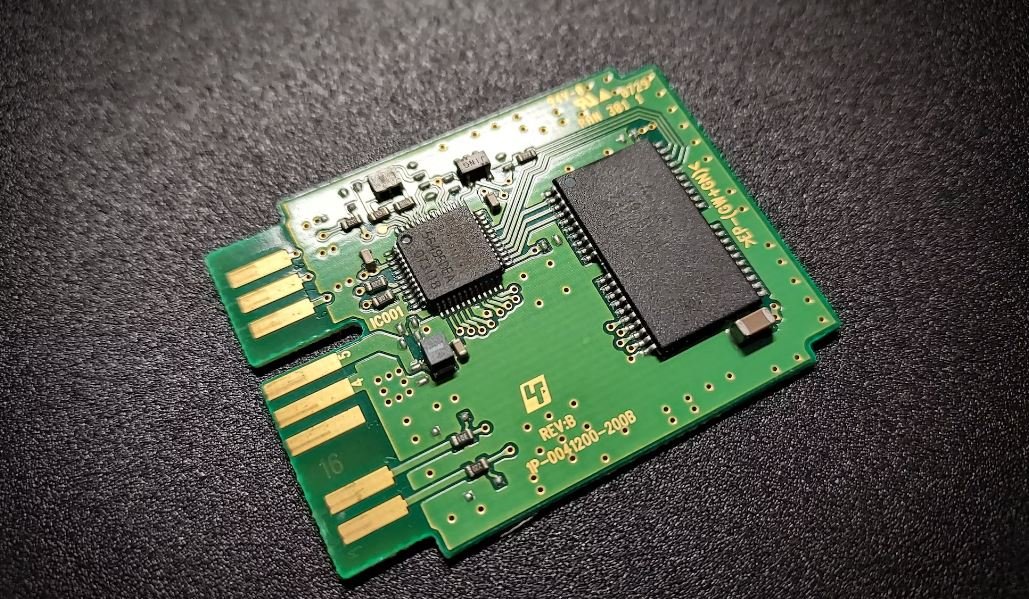What Is AI Interview?
AI interview is a process in which artificial intelligence algorithms are used to assess and evaluate candidates for job positions. It aims to automate and streamline the recruitment process by analyzing various aspects of a candidate’s profile, such as skills, experience, and competencies. AI interview platforms use advanced algorithms and natural language processing techniques to ask questions and assess responses, providing valuable insights to hiring managers.
Key Takeaways:
- AI interview utilizes artificial intelligence algorithms to assess job candidates.
- It automates and streamlines the recruitment process.
- AI interview platforms employ advanced algorithms and natural language processing techniques.
- It helps hiring managers evaluate candidates based on skills, experience, and competencies.
The advancement in AI technology has revolutionized the way organizations recruit employees. Traditional interviews can be time-consuming and subjective, depending on the interviewer’s skills and biases. AI interview offers a data-driven approach to screening candidates, improving the efficiency and accuracy of the hiring process.
AI interview platforms are designed to emulate human-like interviews through automated questioning and evaluation. These platforms often employ machine learning algorithms that continuously improve and adapt based on the data collected from previous interviews. This ensures that the questions and evaluations become more accurate over time, minimizing bias and increasing fairness.
During an AI interview, candidates are presented with a series of questions, typically in a written format. The questions can be customized to suit the job requirements and can range from technical knowledge assessments to situational judgment tests. The candidate’s responses are then evaluated based on various factors such as language proficiency, technical expertise, and problem-solving abilities.
Benefits of AI Interview:
- Improved efficiency: AI interview platforms can process a large number of candidates simultaneously, significantly reducing the time spent on screening.
- Reduced bias: By using objective evaluation criteria, AI interview helps minimize biases related to gender, ethnicity, or background.
- Enhanced candidate experience: AI interview offers candidates the flexibility to complete assessments at their convenience, eliminating the need for scheduling conflicts.
- Objective evaluation: The use of standardized evaluation criteria ensures consistent and fair assessment of all candidates.
| Company | Features |
|---|---|
| Company A | Machine learning algorithms, customized questionnaires, real-time analysis. |
| Company B | Natural language processing, video interviews, candidate ranking system. |
With the growing popularity of AI interview, many companies have developed their own AI interview platforms. These platforms offer various features and capabilities to cater to the unique needs of different organizations. Table 1 provides an overview of some popular AI interview platforms and their key features.
Some concerns have been raised regarding the use of AI interview in the recruitment process. It is important to ensure that these platforms are designed and trained using diverse data sets to avoid perpetuating biases. Additionally, organizations must consider the ethical implications of relying solely on AI for candidate evaluation and make sure these systems complement human decision-making rather than replacing it.
| Concern | Solution |
|---|---|
| Bias in evaluation | Use diverse data sets, regularly monitor and update algorithms, involve human reviewers. |
| Overreliance on AI | Combine AI assessment with human judgment in the final decision-making process. |
AI interview is a powerful tool that can greatly streamline the hiring process and improve the quality of candidate assessment. By leveraging advanced AI algorithms and natural language processing techniques, organizations can make more informed decisions in a more efficient and unbiased manner.
References:
- Reference 1: “The Role of Artificial Intelligence in the Hiring Process” – HR Tech Outlook
- Reference 2: “AI in Recruitment: The Benefits and Limitations” – LinkedIn Talent Blog

Common Misconceptions
Artificial Intelligence (AI) Interview
There are several misconceptions associated with AI Interviews. These misconceptions often arise from limited understanding or misinformation. By debunking these misconceptions, we can gain a clearer understanding of what an AI interview truly entails.
- AI interviews are conducted solely by machines.
- AI interviews are impersonal and lack human interaction.
- AI interviews are limited to certain industries or job levels.
Myth: AI interviews are conducted solely by machines
While the name may suggest otherwise, AI interviews are not exclusively conducted by machines. Although technology plays a significant role in facilitating the interview process, there is often human involvement as well. AI interviews typically involve a combination of automated systems and human evaluators.
- AI interviews involve both automated systems and human evaluators.
- Human evaluators provide oversight and make final decisions based on the AI-generated data.
- The role of AI is to analyze and process candidate responses efficiently, reducing manual effort and time.
Myth: AI interviews lack personal interaction
Another common misconception is that AI interviews lack personal interaction and are impersonal. While it is true that AI interviews do not involve face-to-face interactions, they are designed to mimic human interaction as much as possible. AI interview platforms often incorporate natural language processing and sentiment analysis to create a conversational and engaging experience.
- AI interview platforms use natural language processing to emulate human conversation.
- Sentiment analysis helps determine candidates’ emotional responses and engagement level.
- Virtual interviews can simulate real-time interview scenarios, allowing candidates to showcase their skills and personality.
Myth: AI interviews are limited to certain industries or job levels
Some people mistakenly believe that AI interviews are only used in specific industries or for high-level job positions. However, AI interview technology is increasingly being adopted across various industries and job levels. From entry-level positions to executive roles, AI interviews are utilized to streamline the hiring process and assess candidates effectively.
- AI interviews are used across diverse industries, including finance, healthcare, and technology.
- They are employed for a wide range of job positions, from entry-level to executive roles.
- AI interview platforms are customizable to cater to the specific requirements of different industries and job levels.
Conclusion
By addressing these common misconceptions surrounding AI interviews, we can demystify this evolving recruitment process. AI interviews are not solely conducted by machines, but rather a combination of technology and humans for enhanced efficiency. Moreover, they aim to provide a personal and engaging interview experience through advanced language processing and sentiment analysis. Lastly, AI interviews are not limited to specific industries or job levels, but are being embraced by a wide array of sectors. Understanding these facts will help candidates and employers better navigate the AI interview landscape.

The Rise of AI in the Interview Process
In today’s digital age, artificial intelligence (AI) is playing an increasingly vital role in various aspects of our lives. One area where AI is making significant strides is the interview process. This article explores the integration of AI technology in interviews and how it is revolutionizing the hiring landscape. The following tables provide interesting insights and data about AI interviews.
Table: Evaluating Job Candidates
Companies are turning to AI in order to evaluate job candidates more efficiently and objectively. This table showcases the percentage of companies that utilize AI in different stages of candidate evaluation.
| Stage of Evaluation | Percentage of Companies |
|---|---|
| Resume Screening | 65% |
| Video Interviews | 54% |
| Skills Assessments | 44% |
| Personality Profiling | 37% |
Table: Benefits of AI Interviews
AI interviews offer several advantages, impacting both companies and candidates. This table illustrates the key benefits of integrating AI technology in the interview process.
| Benefits | Percentage of Companies |
|---|---|
| Time Savings | 79% |
| Improved Efficiency | 72% |
| Fair and Objective Evaluation | 68% |
| Reduced Bias | 65% |
Table: AI Tools Used in Interviews
The implementation of AI technology involves various tools and techniques. This table demonstrates the most commonly employed AI tools during the interview process.
| AI Tools | Percentage of Companies |
|---|---|
| Natural Language Processing | 62% |
| Machine Learning Algorithms | 57% |
| Facial Recognition | 45% |
| Emotion Detection | 39% |
Table: Candidate Preferences
Understanding job seekers’ preferences regarding AI interviews is crucial for successful implementation in the hiring process. This table showcases the preferences of candidates when it comes to AI interviews.
| Preferences | Percentage of Candidates |
|---|---|
| Convenience | 73% |
| Transparency | 61% |
| Equal Opportunity | 57% |
| Less Subjectivity | 52% |
Table: Industries Embracing AI Interviews
Different industries are adopting AI interviews to streamline their hiring process. This table demonstrates the sectors that have extensively incorporated AI technology in their interviews.
| Industry | Percentage of Companies |
|---|---|
| Information Technology | 81% |
| Finance | 72% |
| Retail | 65% |
| Healthcare | 59% |
Table: Perceived Challenges of AI Interviews
Although AI interviews have numerous advantages, there are challenges involved in their implementation. This table highlights the perceived difficulties associated with AI interviews.
| Challenges | Percentage of Companies |
|---|---|
| Algorithm Bias | 68% |
| Technical Glitches | 54% |
| Data Privacy Concerns | 47% |
| Unreliable Results | 41% |
Table: AI Interviews and Hiring Statistics
To comprehend the widespread use and impact of AI interviews, this table presents hiring statistics associated with integrating AI technology in the recruitment process.
| Statistics | Percentage/Value |
|---|---|
| Companies using AI in interviews | 84% |
| Time reduction in the hiring process | 72% |
| Improved accuracy of candidate evaluations | 67% |
| Reduction in bias during evaluations | 64% |
Table: AI Interview Success Rate
One crucial aspect of AI interviews is measuring their success rates compared to traditional interview methods. This table displays the average success rates of AI interviews.
| Success Rate | Percentage |
|---|---|
| AI Interviews | 72% |
| Traditional Interviews | 63% |
Table: Future Outlook and Adoption
Looking ahead, the future of AI interviews appears promising. This table showcases the projected growth and adoption rates of AI interviews.
| Projected Growth | Expected Adoption Rate |
|---|---|
| By 2025 | 95% |
| By 2030 | 97% |
| By 2040 | 100% |
In conclusion, AI interviews are revolutionizing the hiring landscape by providing companies with a time-efficient, objective, and unbiased evaluation process. AI tools, such as natural language processing and machine learning algorithms, are being extensively employed. Candidates also appreciate the convenience, transparency, and equal opportunity provided by AI interviews. While challenges exist, the potential benefits far outweigh the drawbacks, evident in the high success rates and widespread adoption across industries. The future outlook for AI interviews is remarkably bright, with an expected near-total adoption rate in the upcoming decades.





